
Find Help
More Items From Ergsy search
-

Is HIV only a concern for certain groups of people?
Relevance: 100%
-

Can people with HIV lead normal lives?
Relevance: 59%
-

What is HIV / AIDS?
Relevance: 51%
-
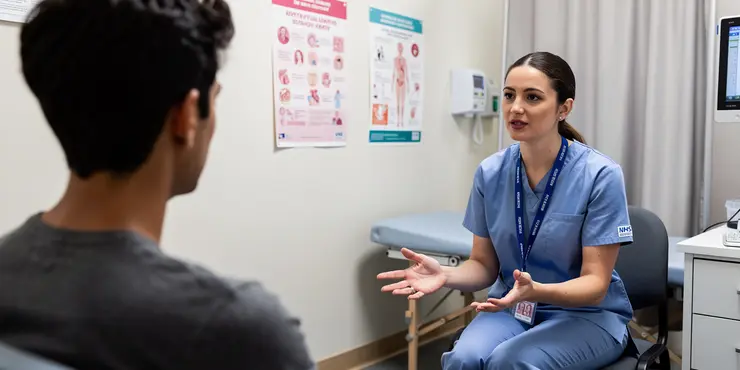
What is HIV?
Relevance: 49%
-

Are there any support groups for people with dementia in the UK?
Relevance: 45%
-
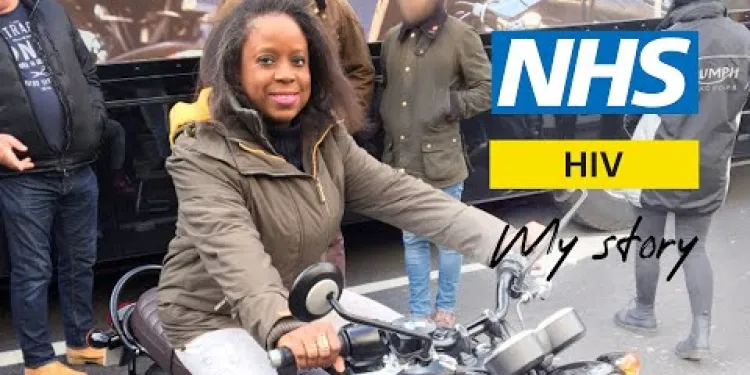
HIV - My Story - Florence | NHS
Relevance: 44%
-
What role does stigma play in the HIV epidemic?
Relevance: 44%
-

Sexual Health - HIV Testing
Relevance: 44%
-

HIV and pregnancy | NHS
Relevance: 43%
-

How can HIV be prevented?
Relevance: 43%
-
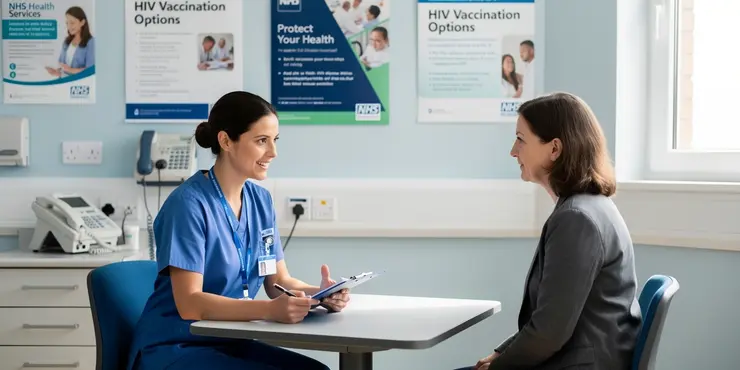
Are there vaccines available for HIV?
Relevance: 43%
-

How is HIV transmitted?
Relevance: 43%
-

Can HIV be transmitted through insect bites?
Relevance: 43%
-

How is HIV diagnosed?
Relevance: 43%
-
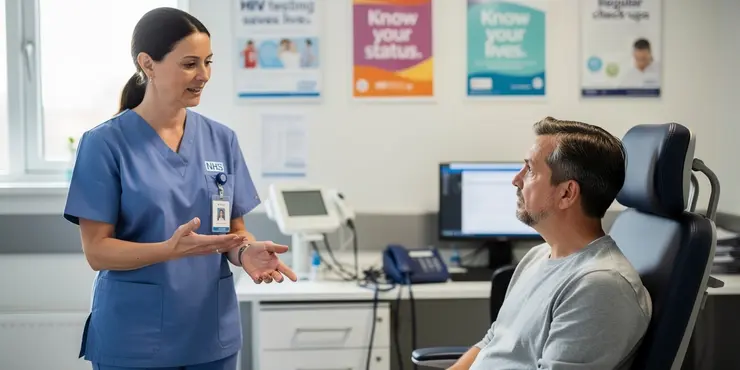
How often should someone get tested for HIV?
Relevance: 42%
-
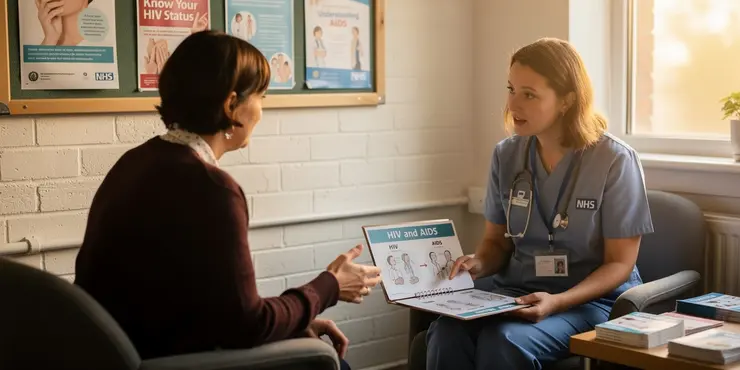
What is the difference between HIV and AIDS?
Relevance: 42%
-
Can HIV be transmitted through blood transfusions?
Relevance: 40%
-

How can older people find hobby groups that align with their interests?
Relevance: 40%
-
How can older people find new hobbies and groups?
Relevance: 39%
-

Is it safe for a partner of someone with HIV to have children?
Relevance: 38%
-

Controversy Surrounds New Surveillance Legislation as Privacy Groups Voice Concerns
Relevance: 38%
-
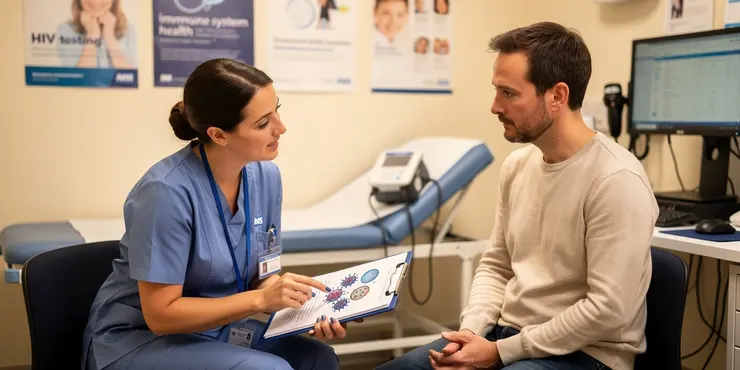
How does HIV affect the immune system?
Relevance: 38%
-

What are the symptoms of HIV?
Relevance: 33%
-

Why is antibiotic resistance a concern with gonorrhoea?
Relevance: 31%
-
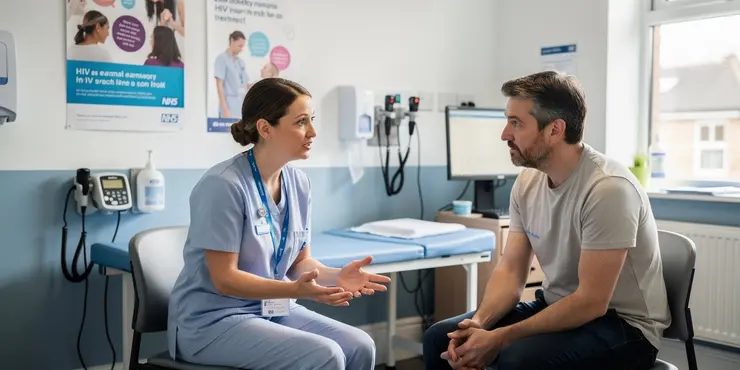
Can HIV be cured?
Relevance: 31%
-
Are there any support groups for people with dementia in the UK?
Relevance: 31%
-
Are there any support groups for people with dementia in the UK?
Relevance: 31%
-

How can older individuals safely participate in new groups during health concerns?
Relevance: 29%
-
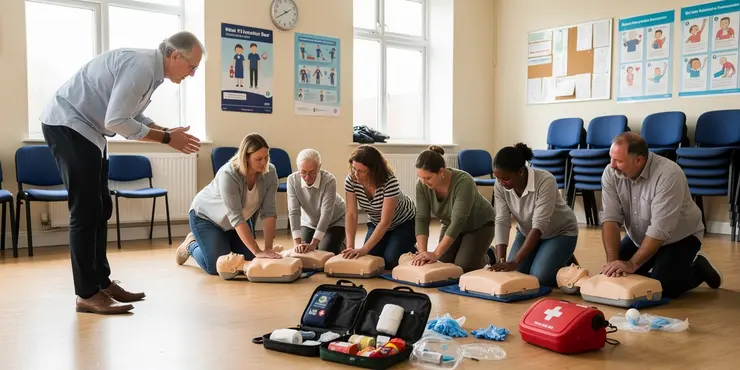
Can I learn first aid as a group?
Relevance: 28%
-

Is childhood obesity a concern in the United Kingdom?
Relevance: 28%
-
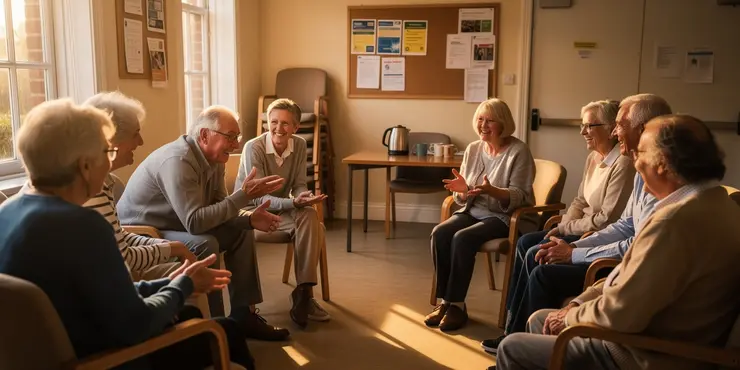
What are some common fears or hesitations older adults have about joining new groups?
Relevance: 27%
-

What age group is most at risk for HPV?
Relevance: 27%
-

Are there any specific groups that should prioritize meningitis vaccination?
Relevance: 27%
-
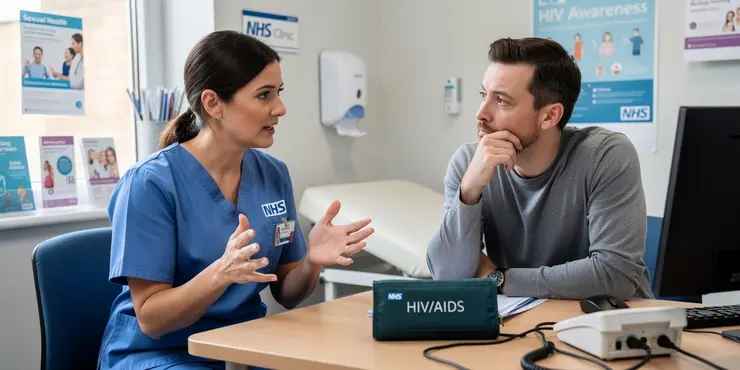
What is AIDS?
Relevance: 27%
-
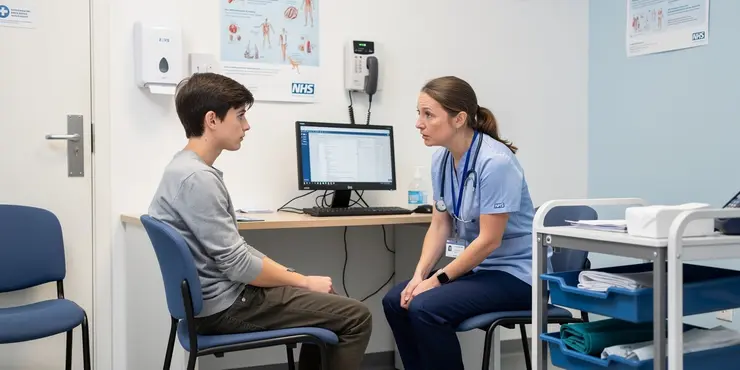
Is appendicitis common in any particular age group?
Relevance: 26%
-

Are there support groups for postnatal depression?
Relevance: 26%
-

Anxiety in young people
Relevance: 26%
-
Is there support available for people with tinnitus?
Relevance: 26%
-

Why is there concern about paracetamol and autism?
Relevance: 26%
-

Improving outcomes for people with diabetes
Relevance: 25%
Understanding HIV in the UK
Human Immunodeficiency Virus (HIV) is a concern for everyone, not just specific groups. It is a virus that attacks the immune system and can lead to Acquired Immunodeficiency Syndrome (AIDS) if untreated. In the UK, advancements in treatment mean that people living with HIV can lead healthy lives, making public awareness crucial for prevention and stigma reduction.
Dispelling Myths about HIV
One persistent myth is that HIV only affects certain groups, such as men who have sex with men, people who inject drugs, or those from particular ethnic backgrounds. While these groups may have a higher risk statistically, the reality is that anyone engaging in unprotected sex or sharing needles is at risk, regardless of age, gender, or sexual orientation. HIV does not discriminate, and assuming otherwise can lead to dangerous complacency.
HIV Statistics in the UK
According to Public Health England, there were approximately 106,000 people living with HIV in the UK as of 2019. While new diagnoses are declining due to successful prevention strategies, such as increased condom use and PrEP (pre-exposure prophylaxis), the virus continues to affect diverse populations. Early testing and treatment are vital in managing the virus and preventing onward transmission.
Importance of Testing and Prevention
Regular testing is essential for anyone who is sexually active or who has shared needles. Early detection allows individuals to start treatment sooner, reducing the viral load to undetectable levels, which means they cannot transmit the virus to others. The UK offers free and confidential testing, which can be accessed through healthcare services, charities, and even self-testing kits available online.
Breaking the Stigma
Stigma remains one of the biggest barriers to addressing HIV. Misunderstandings about how HIV is transmitted can lead to fear and discrimination. Education and open discussions are key to breaking down these barriers. Emphasizing that HIV is a public health issue, not a moral one, can foster more inclusive and supportive environments for those affected.
Conclusion
HIV is a concern for everyone, and understanding the realities of the virus is a critical step in prevention and support. By promoting a more informed perspective, we can ensure that all individuals know their risk, the importance of testing, and the effectiveness of modern treatments. Broadening the conversation beyond stereotypical views not only helps in preventing new cases but also creates a more compassionate society for those living with HIV.
Frequently Asked Questions
Is HIV only a concern for certain groups of people?
No, HIV can affect anyone regardless of age, gender, sexual orientation, or ethnicity. It is a concern for all individuals who engage in behaviors that can transmit the virus.
Who is at risk of contracting HIV?
Anyone can contract HIV, but those at higher risk include people who have unprotected sex, share needles, or have multiple sexual partners.
Is HIV primarily a concern for gay men?
While gay and bisexual men are at higher risk, anyone can get HIV if they engage in risky behaviors. It is not limited to any single group.
Can women contract HIV?
Yes, women can contract HIV through unprotected sex with an infected partner or through sharing needles.
Are drug users at higher risk for HIV?
Yes, individuals who inject drugs and share needles are at increased risk for HIV due to potential exposure to infected blood.
Can children get HIV?
Yes, children can contract HIV from their mothers during childbirth or breastfeeding if the mother is HIV-positive.
Is HIV a concern for young people?
Yes, young people who engage in unprotected sex or use drugs are at risk for HIV, making prevention and education crucial.
Should heterosexual individuals be concerned about HIV?
Yes, heterosexual individuals can also contract HIV if they engage in unprotected sex with an infected partner.
Is HIV an issue outside of Africa?
Yes, HIV is a global issue and affects people in every country around the world, not just in Africa.
Can healthcare workers be at risk for HIV?
Healthcare workers can be at risk of HIV if they are exposed to infected blood through needlestick injuries or other occupational exposures.
Can older adults contract HIV?
Yes, older adults are also at risk for HIV, particularly if they engage in unprotected sex or share needles.
Does HIV only affect people who have multiple sexual partners?
No, even those with a single partner can contract HIV if their partner is infected and they engage in unprotected sex.
Is HIV a concern for people with hemophilia?
In the past, people with hemophilia were at risk due to contaminated blood products, but modern screening has greatly reduced this risk.
Are sex workers at high risk for HIV?
Yes, sex workers are at higher risk for HIV due to increased exposure to infected individuals and potential for unprotected sex.
Can someone contract HIV through casual contact?
No, HIV cannot be contracted through casual contact like hugging, shaking hands, or sharing food or drinks.
Does having HIV mean a person is promiscuous?
No, having HIV does not imply promiscuity, as many factors can contribute to its transmission, including a single encounter with an infected person.
Can travelers be at risk for HIV?
Travelers can be at risk if they engage in unprotected sex or use injectable drugs in countries with higher prevalence of HIV.
Is HIV only a concern in developing countries?
No, HIV is a worldwide issue affecting both developed and developing countries.
Can someone in a monogamous relationship contract HIV?
Yes, if one partner was previously infected or if either partner has unprotected extramarital encounters.
Is HIV a concern for the general population?
Yes, HIV is a public health concern for everyone, and prevention efforts are important for the entire population.
Useful Links
This website offers general information and is not a substitute for professional advice.
Always seek guidance from qualified professionals.
If you have any medical concerns or need urgent help, contact a healthcare professional or emergency services immediately.
Some of this content was generated with AI assistance. We’ve done our best to keep it accurate, helpful, and human-friendly.
- Ergsy carfully checks the information in the videos we provide here.
- Videos shown by Youtube after a video has completed, have NOT been reviewed by ERGSY.
- To view, click the arrow in centre of video.
- Most of the videos you find here will have subtitles and/or closed captions available.
- You may need to turn these on, and choose your preferred language.
- Go to the video you'd like to watch.
- If closed captions (CC) are available, settings will be visible on the bottom right of the video player.
- To turn on Captions, click settings .
- To turn off Captions, click settings again.
More Items From Ergsy search
-

Is HIV only a concern for certain groups of people?
Relevance: 100%
-

Can people with HIV lead normal lives?
Relevance: 59%
-

What is HIV / AIDS?
Relevance: 51%
-

What is HIV?
Relevance: 49%
-

Are there any support groups for people with dementia in the UK?
Relevance: 45%
-

HIV - My Story - Florence | NHS
Relevance: 44%
-
What role does stigma play in the HIV epidemic?
Relevance: 44%
-

Sexual Health - HIV Testing
Relevance: 44%
-

HIV and pregnancy | NHS
Relevance: 43%
-

How can HIV be prevented?
Relevance: 43%
-

Are there vaccines available for HIV?
Relevance: 43%
-

How is HIV transmitted?
Relevance: 43%
-

Can HIV be transmitted through insect bites?
Relevance: 43%
-

How is HIV diagnosed?
Relevance: 43%
-

How often should someone get tested for HIV?
Relevance: 42%
-

What is the difference between HIV and AIDS?
Relevance: 42%
-
Can HIV be transmitted through blood transfusions?
Relevance: 40%
-

How can older people find hobby groups that align with their interests?
Relevance: 40%
-
How can older people find new hobbies and groups?
Relevance: 39%
-

Is it safe for a partner of someone with HIV to have children?
Relevance: 38%
-

Controversy Surrounds New Surveillance Legislation as Privacy Groups Voice Concerns
Relevance: 38%
-

How does HIV affect the immune system?
Relevance: 38%
-

What are the symptoms of HIV?
Relevance: 33%
-

Why is antibiotic resistance a concern with gonorrhoea?
Relevance: 31%
-

Can HIV be cured?
Relevance: 31%
-
Are there any support groups for people with dementia in the UK?
Relevance: 31%
-
Are there any support groups for people with dementia in the UK?
Relevance: 31%
-

How can older individuals safely participate in new groups during health concerns?
Relevance: 29%
-

Can I learn first aid as a group?
Relevance: 28%
-

Is childhood obesity a concern in the United Kingdom?
Relevance: 28%
-

What are some common fears or hesitations older adults have about joining new groups?
Relevance: 27%
-

What age group is most at risk for HPV?
Relevance: 27%
-

Are there any specific groups that should prioritize meningitis vaccination?
Relevance: 27%
-

What is AIDS?
Relevance: 27%
-

Is appendicitis common in any particular age group?
Relevance: 26%
-

Are there support groups for postnatal depression?
Relevance: 26%
-

Anxiety in young people
Relevance: 26%
-
Is there support available for people with tinnitus?
Relevance: 26%
-

Why is there concern about paracetamol and autism?
Relevance: 26%
-

Improving outcomes for people with diabetes
Relevance: 25%


